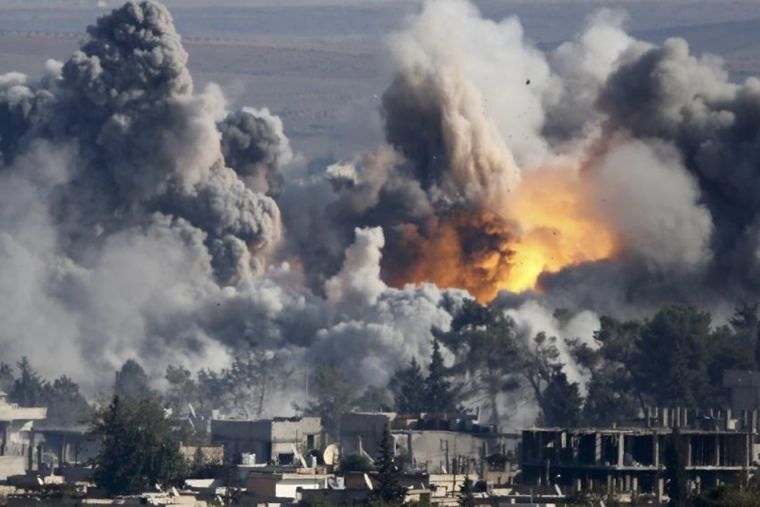U.S. bares new strategy against ISIS: Follow the money trail and blow it up

U.S. military officials said they have found a more efficient way of beating the terrorist Islamic State (ISIS): Blowing up its money after trailing it.
According to an NBC News report, military officials recently unveiled its new strategy in fighting the extremist group which has so far been proven effective after a wave of successes in the last few months.
At least four times in the past four months, U.S. jets targeted ISIS financial centres, "destroying them in strikes that have turned millions of U.S. dollars into confetti."
U.S. warplanes also killed at least two ISIS financial leaders — the group's "oil minister" in 2015 and its "finance minister" in March, reports NBC News.
CIA Director John Brennan said the strikes are part of a broader cyber effort against ISIS. "They are murderers and we need to be able to change this narrative — including in the cyber environment, the digital domain, in social media," he said.
"It is a question of what type of activities might take place in that cyber environment that we would be able to carry out destructive actions against," he added.
According to Brennan, the U.S. has been tracking, manipulating and even stealing or destroying the financial assets of terrorists as part of measures to crush the extremist group.
The intelligence community tracks ISIS financial transactions through data collection programmes with such secret code names as "Kaching" (CIA), "TRACKFIN" (NSA) and FINO (the National Clandestine Service).
"Newly created electronic portals for the processing of what is now called financial intelligence (or FININT) — Swordfish, QLIX/HYDRA and Sentry, among others — fuse together conventional banking, transaction and intercepted data," said the report.
The biggest blow to ISIS happened after the U.S. began targeting financial facilities, such as the reported series of strikes on ISIS oil production and distribution assets.
On Jan. 11, a coalition airstrike destroyed an ISIS "cash and finance distribution centre" in a nondescript building in Mosul, the northern Iraqi city of 2 million controlled by the group, reports said.
Military officials said a video showed "a plume of shredded U.S. cash," mostly $100 bills, hundreds of feet up in the air after missiles hit the alleged "financial" centre.
A senior intelligence official told NBC News that "as much as $50 million in financial assets" was destroyed in that attack, "including $35 million in U.S. paper currency and euros."
The amount is believed to be equivalent to about one-fifth of the amount the ISIS looted from Iraqi banks when its forces ransacked Mosul in June 2014.
"You can bet that (ISIS) is feeling the strain on its checkbook," said CENTCOM commander Gen. Lloyd J. Austin III, describing the first "money bomb."
"We estimate that it served to deprive ISIL [ISIS] of millions of dollars."
The losses in oil fields and territory have taken a toll on ISIS. Last year, the group was raking in some $80 million a month from oil smuggling, antiquities sales, and taxes. That revenue has now been cut by about 30 percent, U.S. intelligence sources say.
Today, ISIS is paying its fighters half what they once made and rationing medical supplies. But despite its financial woes, the ISIS is still the best-funded militant group in the world, the sources say.











